Last updated on August 12th, 2025 at 03:48 pm
Let me take you on a journey through the wild and wondrous world of Greek mythology! Imagine a time when gods played chess with humans, monsters roamed free, and heroes took on quests that put today’s reality shows to shame.
Greek mythology is rich with fascinating and famous tales that have captivated people for centuries.
Alright, my fellow myth enthusiasts, hold onto your laurel wreaths because we’re about to take a grand tour through the wild and woolly world of Greek mythology. And trust me, it’s a ride that’s more epic than an ancient poetry slam, we’re diving into a treasure trove of stories that have kept generations wide-eyed and eager for more.
Here are some of the most well-known tales:
Perseus and Medusa
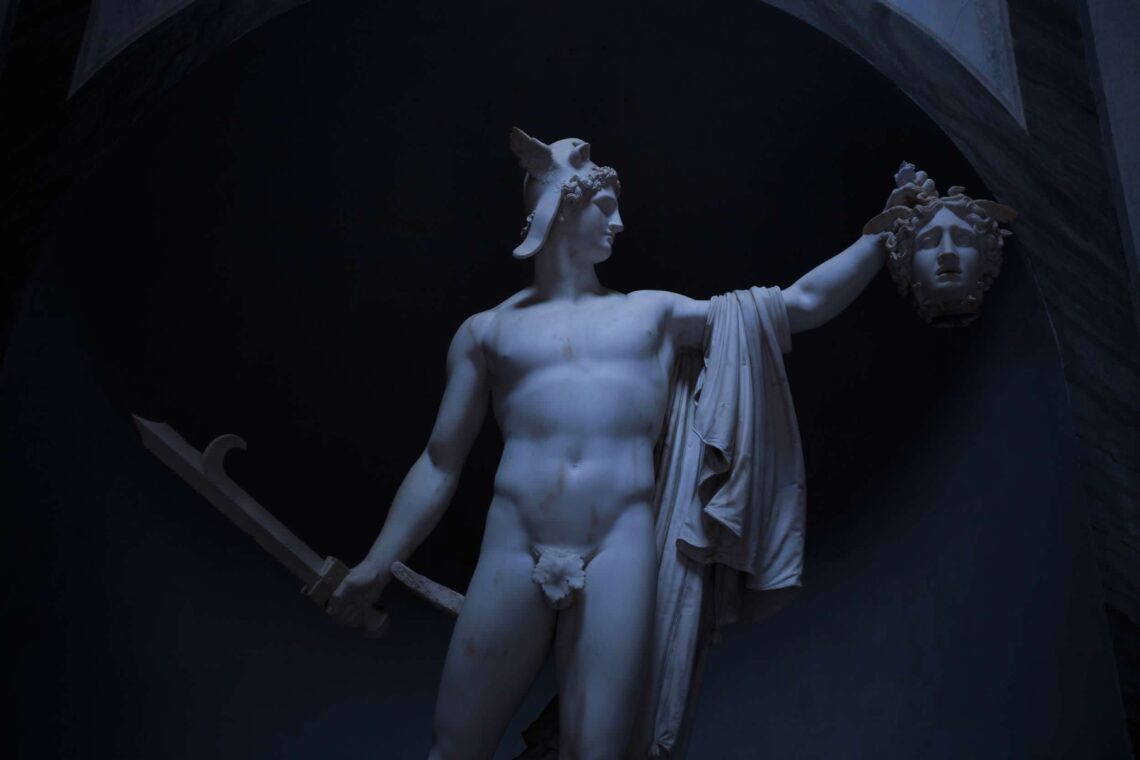
Alright, let’s dive into a tale that’s as wild as it gets! Imagine a dude named Perseus, half human, half god. Like, his resume would read: “Can take on monsters before breakfast.” So, one day, he gets this mission that sounds like it’s from a fantasy video game: “Hey Perseus, go chop off the head of Medusa, a lady with snakes for hair, and an eye-locking power that could give you a bad hair day for eternity!”
Now, Perseus isn’t one to back down from a challenge. Armed with determination and some seriously heavenly connections, he gears up for his epic monster hunt. And let me tell you, his toolset is better than a superhero’s utility belt.
First, there’s the shiny shield, like a cosmic mirror that could make even the vainest selfie enthusiast jealous. With that, Perseus won’t have to catch a deadly glimpse of Medusa’s stare. Then, we’ve got winged sandals, the kind you’d trade a kingdom for on eBay. These babies make you faster than a speeding bullet, or in this case, faster than a snake-haired monster.
Oh, but wait, there’s more! A cap of invisibility. Yes, you read that right: a cap that turns you invisible. That’s like every teenager’s dream come true. Just think about all the pranks you could pull with that thing.
Now, picture Perseus, looking like a mythical mix of Iron Man and Harry Potter, flying towards Medusa’s lair. And there she is, Medusa, hissing and slithering around like a bad hair day gone horribly wrong. But remember, our hero’s got that shield, perfect for some cosmic shield surfing action.
Perseus positions the shield just right, using it as a mirror to catch Medusa’s petrifying gaze. And bam! He strikes with a swiftness that’d make a ninja proud. Medusa’s head is off before she can even blink her snake eyes. You’d think the story ends there, right? Nah, my friend, this is Greek mythology; it’s never that simple.
Now, Perseus doesn’t just toss the head away like a spare weapon. Nope, he’s got a plan. He seals it in a bag like it’s some kind of squishy trophy. And guess what he does next? He uses that head to turn his enemies to stone. I mean, that’s like carrying around a portable “freeze” button that works on anything. You’re causing trouble? Boom, now you’re a statue.
So, there you have it: Perseus, the ultimate monster slayer, rocking gifts from the gods like it’s a pop star’s swag bag. Medusa’s head? It’s not just a trophy, it’s his weapon of choice. This is the stuff of legends, where heroes were part divine, monsters had snake hair, and turning your enemies to stone was all in a day’s work.
Theseus and the Minotaur

Alright, gather ’round, folks, because I’m about to spin you a tale that’s like a mix of a fantasy adventure and a mind-bending maze! Meet Theseus, the Greek hero who decided, “You know what sounds like a great idea? Taking on a half-bull, half-human monster in a labyrinth. Easy peasy!”
So, here’s the deal: King Minos, ruler of Crete, had this insane maze constructed. Imagine if a maze and a puzzle had a baby, and that baby was on steroids, yeah, that’s what we’re talking about. And at the heart of this architectural headache? Here is the Minotaur, a dude with the body of a beefy human and the head of a raging bull. He’s like a bad day at the farm gone wrong.
But, surprise! Theseus ain’t your average dude. He’s the kind of guy who’s like, “Hey, I got this.” So, he takes it upon himself to sail over to Crete, ready to face this furry-headed freak. And guess what? He’s got a secret weapon, a ball of thread. Yup, you heard that right, a thread. But not just any thread, this is Ariadne’s thread, like a divine GPS that’ll lead him through the maze and back out again.
Now, imagine Theseus, armed with more guts than common sense, entering the labyrinth. It’s like a twisted maze where every turn is a one-way ticket to confusion. But this guy’s got that thread, his lifeline. He’s leaving a trail of thread behind him like some sort of mythological Hansel and Gretel.
As he inches deeper into the maze, you can almost hear the eerie echoes of his footsteps bouncing off the stone walls. He’s walking into the heart of darkness, determined to face the beast that’s been giving everyone a real “bad hair day” situation.
And then, like something out of a movie, he finds it, his showdown with the Minotaur. It’s the ultimate clash of species, a showdown of mythic proportions. But Theseus, he’s not just armed with a thread, he’s got courage that’d put action movie heroes to shame. They tussle, they fight, and in the end, Theseus triumphs. The Minotaur goes down like a ton of bricks.
Now, if you thought the thread was done, think again! Our hero retraces his steps, following the thread back to the entrance. It’s like he’s using a divine escape route, a trail of breadcrumbs to lead him out of this maze of mayhem.
So, Theseus emerges victorious, thread in hand, Minotaur down and out. He’s beaten the beast, navigated a maze that would give even Google Maps a headache, and lived to tell the tale. It’s a story that’s got it all, heroes, monsters, mazes, and a magical thread that’s a lifeline to victory. Welcome to Greek mythology, where even getting lost can lead you to legendary feats!
Pandora’s Box

Alright, folks, gather ’round for a tale that’s like a lesson in what not to do when you’re handed a mysterious box. It’s all about Pandora, the gal who’s about to prove that curiosity isn’t just a cat’s thing, it’s a human thing too!
So, Pandora, the OG woman of mythology, is given a box, though some say it’s a jar, by Zeus himself. Now, you’d think, “Hey, a gift from a god? Must be something super cool, right?” Well, think again. Zeus, in his infinite divine wisdom, decides to throw in a twist. He tells Pandora, “You can have this box, but whatever you do, don’t open it. Seriously. Don’t.”
Now, you know how it goes with forbidden fruit and all that jazz. Curiosity’s got a grip on Pandora, and she’s like, “I wonder what’s inside? It’s probably just some cute little kittens or maybe a bunch of those mini cupcakes.” Spoiler alert: it’s neither.
One day, when Zeus is busy doing his godly thing, Pandora’s resolve crumbles like a stale cookie. She’s just gotta know what’s in that box. So, she takes a deep breath, unlatches the lid, and poof! Out come the miseries of the world, all the bad stuff like sickness, pain, and the whole misery buffet. It’s like she opened the door to a cosmic grumpy cat convention.
But hold on, it’s not all gloom and doom. Just when you think Pandora’s got humanity’s worst covered, there’s a tiny glimmer of light left at the bottom of the box. You guessed it, hope. It’s like Zeus was playing the long game, making sure that even when life throws its worst at us, there’s still a sliver of optimism left to cling to.
And that’s the story of how Pandora became the ultimate example of what happens when curiosity turns into a full-blown epic oops moment. Remember, kids, next time someone hands you a mysterious box and says, “Don’t open it,” maybe just take their word for it. Because who knows what cosmic chaos you might unleash—or whether you’ll find yourself holding onto that last thread of hope when things get tough.
Orpheus and Eurydice
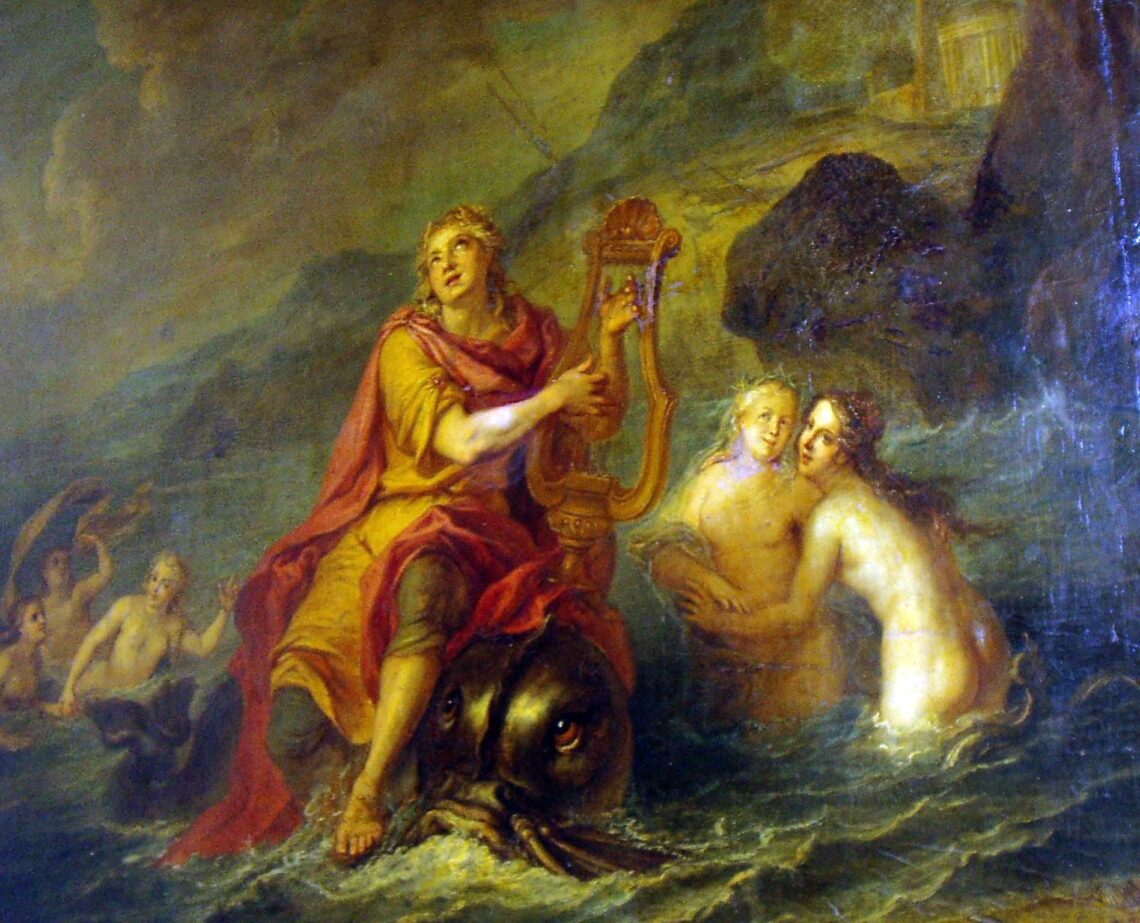
Oh, gather ’round, music lovers and heartbreak enthusiasts, because we’ve got a legendary tale that’s the ancient Greek version of a tear-jerker romantic ballad. Meet Orpheus, a musician whose melodies could make even rocks cry, and his love story that’s more twisted than a corkscrew.
So, here’s the scoop: Orpheus meets Eurydice, and it’s like a scene out of a rom-com. Hearts are aflutter, stars are aligning, and next thing you know, wedding bells are ringing. These two lovebirds are head over heels, for the real deal, a match made in Mount Olympus.
But hold onto your lyres, because this fairy tale takes a dark turn. Tragedy strikes, and Eurydice bites the dust right after their “I do’s.” Imagine that a wedding is followed by a funeral. It’s like the universe couldn’t decide between cake and chaos, so it went with both.
Now, Orpheus isn’t about to let death cramp his style. Nope, he’s got a plan that’s wilder than a rock concert in the Underworld. Armed with his legendary tunes, he sets off to the land of the dead, strumming his lyre like it’s a magical passport.
So there he is, at the entrance of the Underworld, facing Hades, the god of the dead, and his stern-faced wife Persephone. It’s like he’s auditioning for the most epic gig of his life, a one-man show to bring back his lady love. And guess what? His music works like a charm. Hades is so moved, he’s like, “Sure, you can take Eurydice back. On one condition: you can’t look back at her until you’re back in the land of the living.”
Now, imagine Orpheus walking out of the Underworld, Eurydice just a few steps behind him. The sun’s rays are touching his face, hope is in the air, and you can practically hear the triumphant soundtrack playing. But, oh, there’s always a but; he can’t resist a quick peek. It’s like he’s not happy with just a happy ending; he wants to check if it’s real.
And just like that, poof! Eurydice is gone, back to the realm of the dead. It’s like someone hit the pause button on the cosmic love story. Orpheus is left heartbroken, devastated, and with the ultimate lesson in the “don’t look back” rule.
So, there you have it, a tale that’s got love, music, a heroic journey, and a tragic twist that’d give Shakespeare a run for his money. Orpheus’ lyre might have charmed even the gods, but it turns out, a single glance was his undoing. Remember, folks, when life hands you a second chance, just keep walking forward, because looking back might cost you more than a song can ever express.
Eros and Psyche
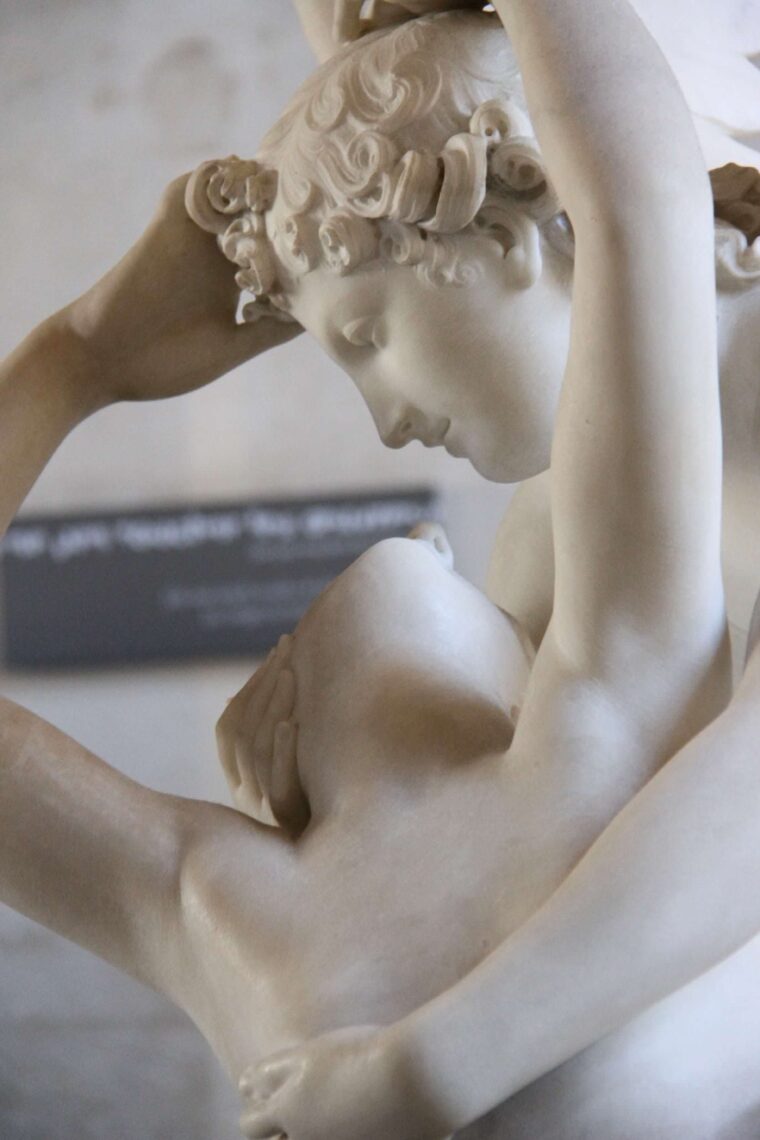
Ladies and gentlemen, gather ’round for a love story that’s got more twists and turns than a rollercoaster built by mischievous Greek gods. It’s the tale of Psyche, a mortal with beauty that could launch a thousand ships, and Eros, the god of love, who decided to give his heart a workout. But hold onto your metaphorical hats, because this story is about to get wilder than a rodeo.
Psyche is so gorgeous that people are sacrificing her beauty instead of Aphrodite, the goddess of love and beauty herself. That’s like stealing candy from a goddess, a big no-no. Aphrodite’s not having it, so she sends her son, Eros, on a mission to mess things up. But there’s a twist. Eros takes one look at Psyche and, plot twist alert! falls in love with himself.
It’s like a Shakespearean comedy with a divine touch. Psyche, blissfully unaware of the godly chaos behind the scenes, finds herself in an unusual situation. You know, like when your crush shows up at your job, but instead of your crush, it’s the actual god of love with his magical arrows. Yeah, that sort of thing.
But Eros’s not just some lovesick teenager; he’s a god, and he’s got a plan. So he whisks Psyche away to a palace in the clouds, where they live their best fairy-tale life. There’s love, romance, and probably a ton of otherworldly perks, like rainbows on tap and cloud-made popcorn.
Now, here’s where it gets tricky. Psyche’s got a taste of the high life, but she’s also super curious. Like, Pandora-level curious. So one night, she sneaks a peek at her divine husband in all his godly glory, breaking the golden rule of “Don’t look at your husband in the dark.” It’s like she’s binge-watching a Netflix show she’s not supposed to watch, and now she’s getting busted.
Eros, understandably upset, pulls an “I’m outta here!” and flies off in a godly huff. Psyche, feeling like the protagonist of a Shakespearean tragedy, is now on a quest to win back her true love’s trust. Cue the trials and tribulations worthy of a reality show obstacle course.
From fetching impossible tasks set by Aphrodite to wandering through the Underworld with a single lamp, Psyche’s journey makes “The Amazing Race” look like a casual stroll. And through it all, she proves her love and determination, proving that she’s not just a pretty face.
Long story short, after a lot of mythological drama, Aphrodite realizes that maybe her jealousy isn’t worth ruining true love. Psyche and Eros reunite, and they’re officially the power couple of Olympus. It’s like a romantic movie where the couple overcomes obstacles, with a divine twist.
So, folks, there you have it, a tale of love, jealousy, divine meddling, and a mortal who proves that sometimes, even gods can’t get in the way of true love. Psyche and Eros are like the ultimate relationship goals, showing us that even when the odds are stacked against you, love can conquer all, even meddling goddesses.
A small notification: Eros is the Greek counterpart of the Roman god Cupid, and Psyche is indeed the Greek word for “Soul.”
Prometheus and Pandora
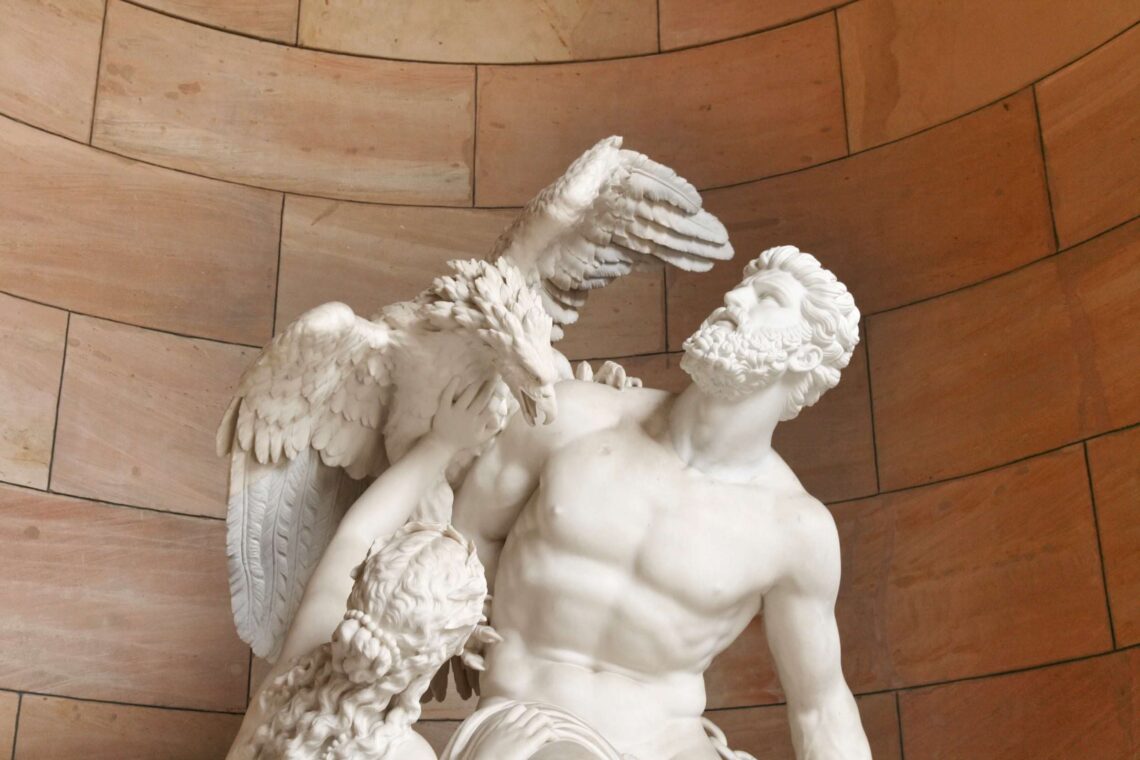
Alright, buckle up, because we’re diving into a tale that’s hotter than Prometheus’ stolen fire itself. We’re talking fire heists, eternal liver picnics, and a little side dish of Pandora’s box. Get ready for a myth that’s like a combo meal deal of epic proportions.
So, imagine you’re Prometheus, a titan who’s got a soft spot for the little guys down on Earth. You look at those humans shivering in the dark and think, “Hey, what if I stole some divine fire and gave it to them? Warmth, light, and maybe some killer marshmallow-roasting nights.” It’s like a DIY home improvement project for humanity.
And bam! Just like that, Prometheus becomes the ultimate fire thief, swiping the sacred flames from the gods themselves. He delivers the fiery goods to the mortals, sparking (pun intended) an era of enlightenment. Suddenly, humans are like, “Whoa, we can see in the dark now and cook things! This Prometheus guy’s a genius!”
But, of course, Zeus isn’t thrilled about the whole divine fire theft situation. I mean, imagine someone sneaking into your kitchen and making off with your best spices. So, Zeus decides to throw down some godly punishment. He orders Prometheus to be chained to a rock, like some sort of cosmic BBQ skewer, and to make things even more interesting, he sends an eagle to have lunch on Prometheus’ liver. Every. Single. Day.
And you thought Mondays were tough.
Now, here’s where it gets even wilder: our friends Prometheus and Pandora, the lady with the box of doom, they’re kind of like cosmic BFFs. See, Prometheus’s story is all about bringing light to humanity, and Pandora’s tale is like, “Hey, I’ve got a box filled with all the world’s miseries. Wanna see?” These two tales are like the ultimate tag team of Greek mythology.
Pandora’s box is Pandora’s “curiosity got the best of me” moment, just like Prometheus’ fire thievery was his “look what I can do” moment. And as fate would have it, both these moments involve stirring up divine drama. It’s like the gods were throwing a never-ending mythological party, and Prometheus and Pandora were the life of it.
So, there you have it, a tale that’s hotter than a dragon’s breath, more twisted than a pretzel, and somehow connected like a dot-to-dot puzzle. Prometheus, the firebringer, and Pandora, the box-opener, both left their mark on Greek mythology in an unforgettable way. It’s a reminder that even in the ancient world, curiosity, theft, and divine repercussions were like a cosmic game of dominoes. And somewhere in there, humanity got a taste of fire, misery, and the whole rollercoaster of enlightenment.
Perseus and Andromeda
After slaying Medusa, Perseus rescues Andromeda from a sea monster sent by Poseidon. This heroic adventure blends divine help and mortal courage for a classic tale of rescue and reward.
[Link to full story]
Daphne and Apollo
Cupid’s arrow sparks Apollo’s passionate chase of the nymph Daphne. To escape him, she is transformed into a laurel tree — a myth about desire, transformation, and love just out of reach.
[Link to full story]
Niobe’s Hubris
Niobe brags about having more children than the goddess Leto, angering Apollo and Artemis, who punish her by killing them all. A cautionary tale about pride and divine retribution.
[Link to full story]
The Judgment of Paris
Prince Paris faces a tough choice between Hera, Athena, and Aphrodite as the fairest goddess. His fateful decision to pick Aphrodite sets the stage for the Trojan War and all its epic fallout.
[Link to full story]
The Abduction of Persephone
Hades kidnaps Persephone, daughter of Demeter, making her queen of the Underworld. This myth explains the changing seasons as Demeter mourns her lost daughter.
[Link to full story]
Wrapping Up
Greek mythology is a vast and timeless tapestry of stories that encompass everything from epic battles, heroic quests, and formidable monsters to deep explorations of the human psyche.
These myths are not just ancient tales but the foundation of our cultural imagination, inspiring countless works of art and language.
They have woven themselves into the fabric of our culture and continue to captivate audiences across the ages, making Greek mythology a cosmic symphony that will endure for centuries, keeping us under its spell.


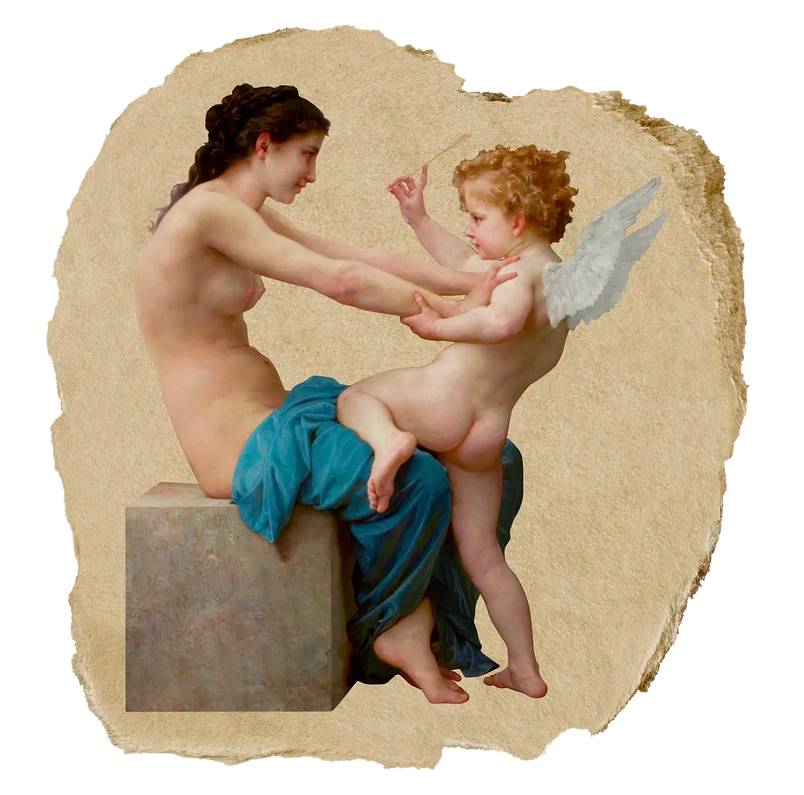
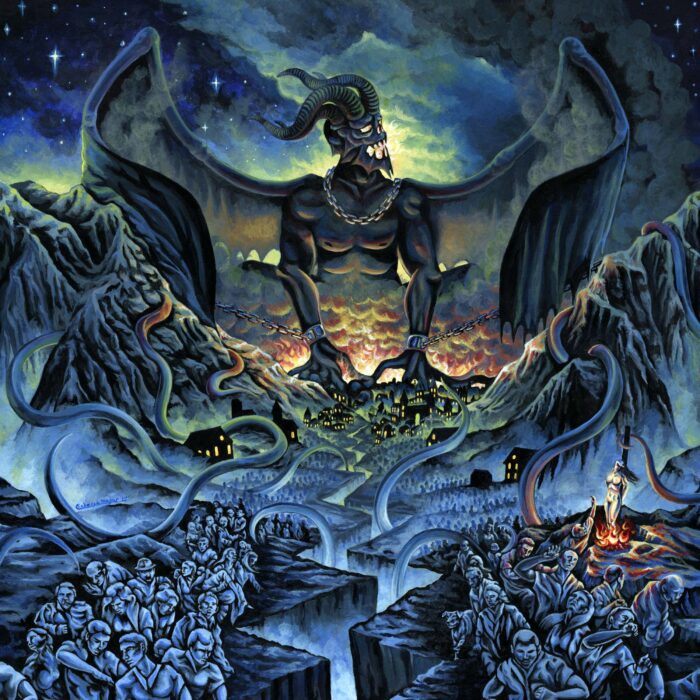
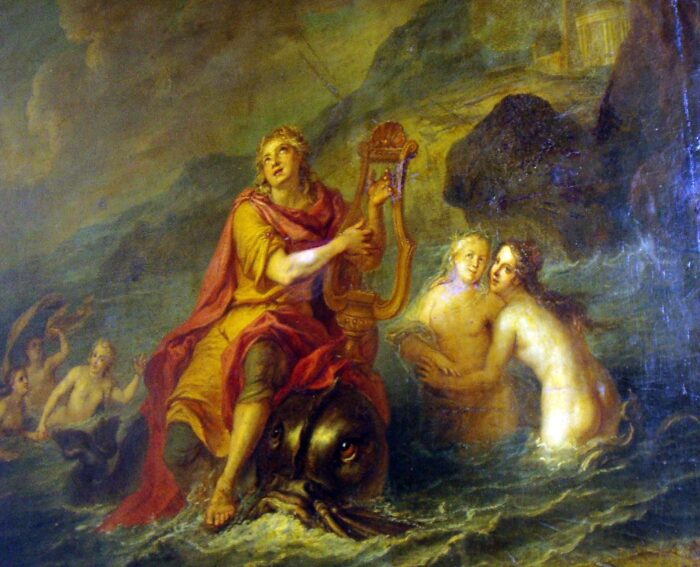


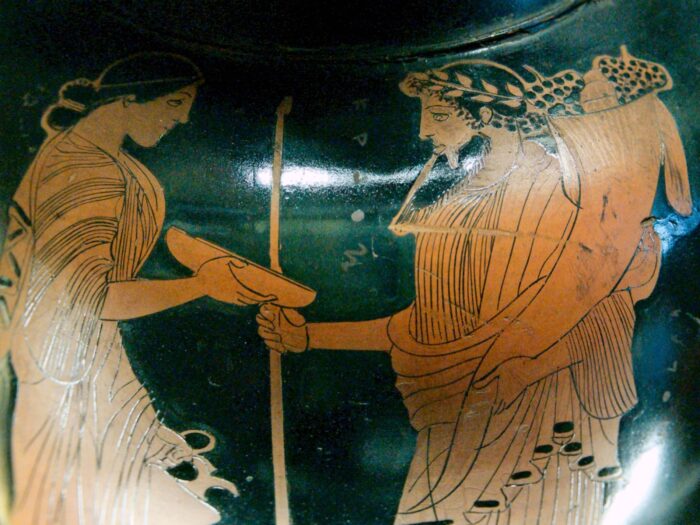

Comments